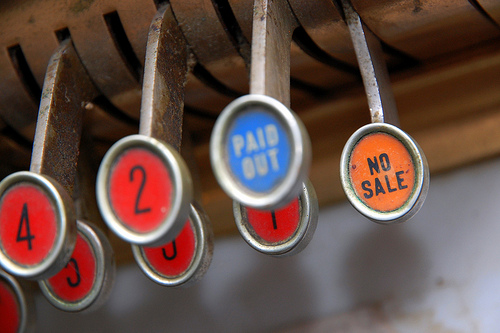
Should you accept payments for your goods and services, or not? For many UK businesses, the issue isn’t as clear-cut at is seems. Here are just some of the important issues you face, and how you should think about them.
How Cash-Only Is Dangerous As a Business Model
Running a cash-only business seems like the cheapest, and safest, way to operate, but it’s not. Let’s start with the basics. The UK is the biggest credit card payments market in all of Europe. It accounts for over 70 per cent of the total credit card market and 30 pc of all credit card transactions.
This trend isn’t declining either. It’s increasing. So, while you may have carved out a niche for yourself without credit cards, the reality is that this niche is probably going to be shrinking every year. Customers may be willing to pay cash for things, but it’s becoming more and more of a hassle. And, people prefer to pay with credit or other cashless options.
Customers Are Demanding Cashless Options
According to The Telegraph, at least 64pc of Britons want to be able to pay using a credit card or debit card. Yet, many businesses, as many as 50 per cent, don’t accept cards. Some speculate that it’s the fees.
Whatever the reason, it’s costing UK businesses £12bn a year in sales.
There are good reasons to want to pay with a credit card. First, even though there is interest charged on the transaction, many people view it as acceptable because either they don’t have the money to pay for the goods right now and need to charge the purchase or they don’t want to take the risk with the merchant.
By paying with a credit card, the risk is shifted back to the merchant by the merchant services provider. If there’s a problem, the customer can take it up with MasterCard or Visa, instead of a small business owner. And, they feel like they’re more likely to get resolution over the phone with their credit card company than with a merchant. Plus, they won’t have to confront the merchant.
Of course, none of that is a benefit to you if there does happen to be a dispute. But, on the bright side, the payment processing is easy and it may lead to more sales, higher transaction amounts, and more revenue.
Why? Because consumers are able to pay more for things that they hadn’t accounted for with cash. When you walk into a shop with £100, that’s pretty much all you’re going to spend. There’s a cap set for the customer.
But, when a customer walks into a shop with a debit card, he’s essentially carrying his whole bank account into the store with him – much more money.
And, if he has a credit card, he’s taking the issuing bank’s money with him. Naturally, there’s more opportunity for a sale and more money to spend. Guess what’s most likely to happen?
Getting a Merchant Account
Getting a merchant account isn’t as easy as you might think. Some banks require extensive underwriting and background checks. And, if you go for a dedicated account, be prepared to disclose your monthly sales volume and expected revenue for the year.
You can compare UK merchant accounts for the best deal, of course, and this is where the process becomes a little easier and friendlier. With options like PayPal, Stripe, and Square, there’s less underwriting, but the fees are higher for transactions. Still, it gets you in the door without making big commitments.
With traditional merchant accounts, being able to compare fees and terms, you’re more likely to get a lower-cost option that fits your budget and your business needs. Compare at least 5 different service providers, including third-party processors, to get a good idea of what it will cost you and how easy or difficult the setup will be.
More Advantages To Cashless Payments
If you’re still on the fence about accepting plastic, here are a few facts that might convince you:
Customers are being encouraged by other merchants (your competitors) to use cashless payments.
Payments that are made via credit card are processed very fast. There’s no delay, waiting for a cheque to come in the post, or for the bank to clear the funds. In most cases, you’ll have your money transferred from a merchant account to your business bank account within 4 working days.
Many consumers don’t carry exact change these days, and limit carrying bills because of the risk of carrying cash. If you’re a merchant that relies on impulse purchases, this will jeopardize the future of your operation.
Editor’s note: Jane Langdon is a business consultant who has worked with all types of businesses throughout her 20 year career. She enjoys helping people better understand their options, and to not be afraid of new technology, as they grow their business online.